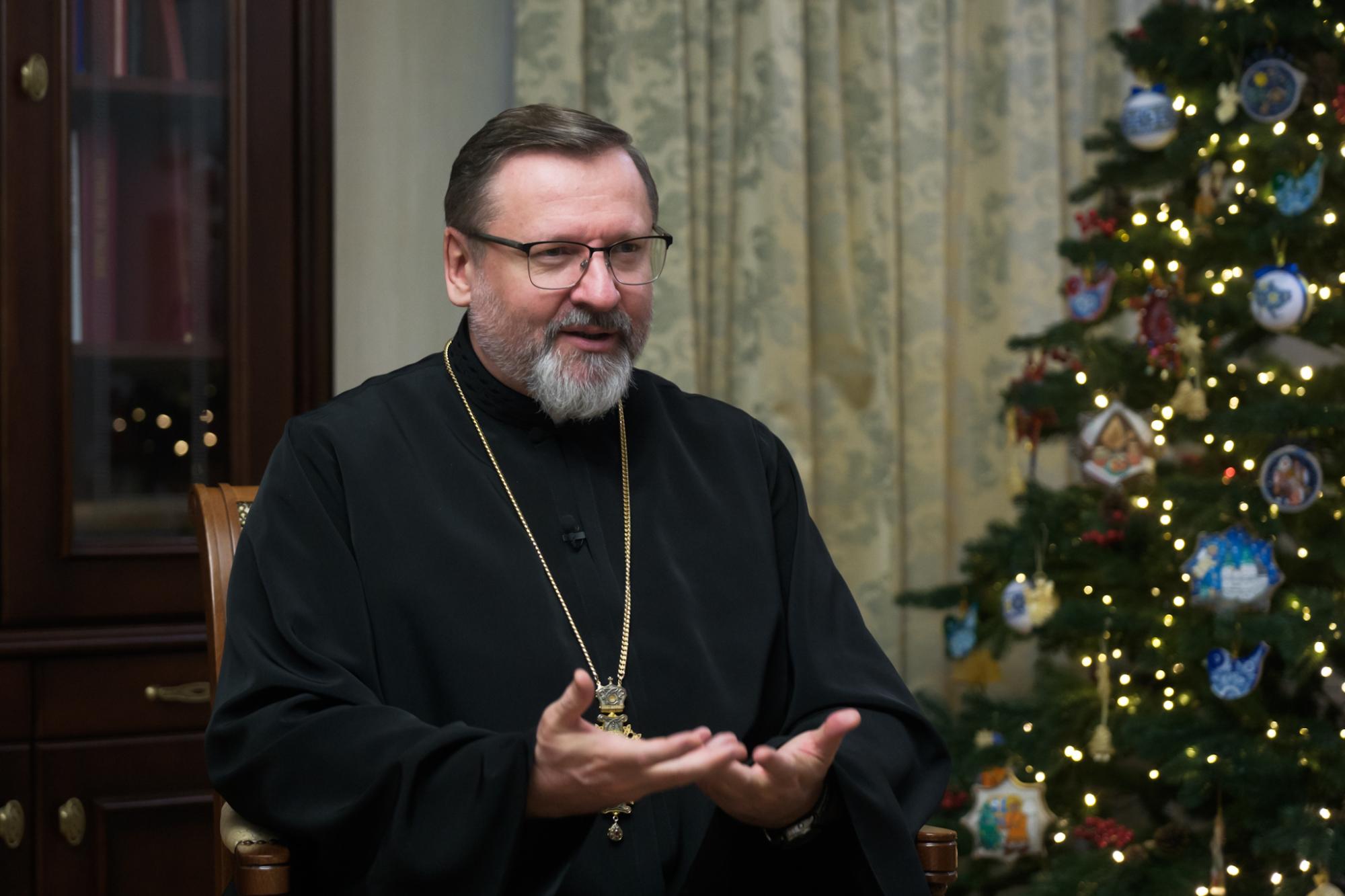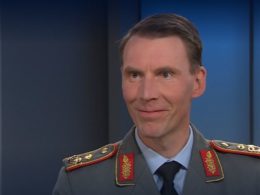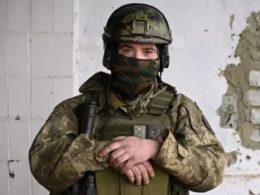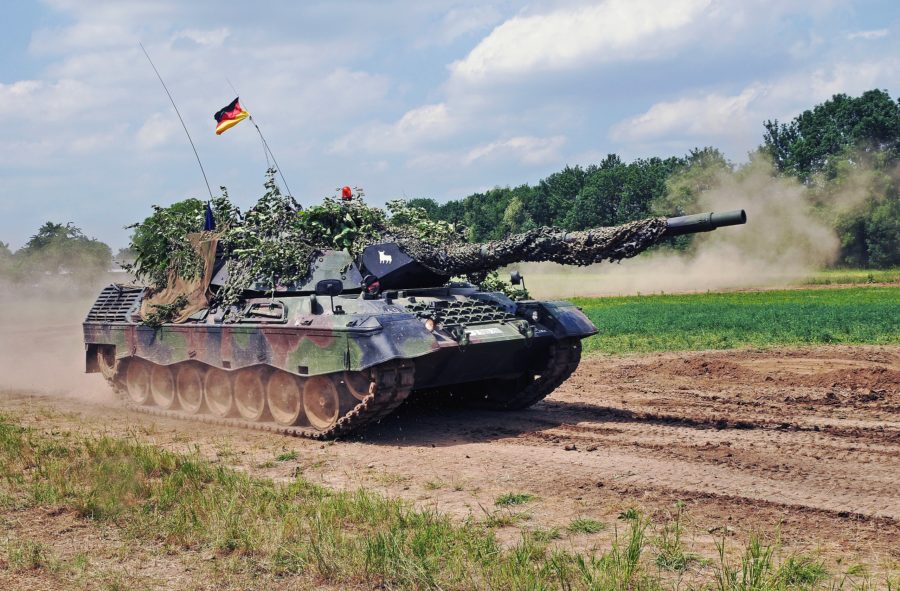In an interview with RBC-Ukraine, Major Archbishop Sviatoslav, head of the Ukrainian Greek Catholic Church (UGCC), clarified that the Vatican is not mediating between Ukraine and Russia because no such request has been made. He also warned about Russia's attempts to weaponize religion and manipulate Ukrainian communities abroad, particularly in Germany.
Pope Francis has previously faced multiple controversies in his approach to the Russian war in Ukraine. Notably, his calls for peace negotiations have drawn criticism for potentially benefiting Russia by freezing the conflict without addressing Ukraine’s territorial integrity.
According to Major Archbishop Sviatoslav, while certain terms used by Pope Francis may have different interpretations in different contexts, the Vatican's diplomatic efforts focus on humanitarian aspects.
"The Vatican is not performing any mediating mission, and no one has asked for such a mission," he told RBC-Ukraine.
The UGCC head revealed that over the past three years of war, he personally delivered more than 3,000 names of Ukrainian prisoners of war to Pope Francis, while the Vatican's nunciature transmitted about 5,000 names.
“Hypocritical” to arm Ukraine, Pope Francis says, silent on Russian terror
Major Archbishop Sviatoslav says he had a private audience with Pope Francis during his October stay in the Vatican for the papal synod, a day before President Volodymyr Zelenskyy's visit.
"I presented the current situation in Ukraine and specifically asked, 'Your Holiness, do something, because Russia is systematically destroying Ukraine's energy infrastructure. They want to turn even winter into a weapon,'" RBC-Ukraine reports him saying.
Major Archbishop Sviatoslav noted that Pope Francis wrote down his words and used them in his subsequent Sunday address after the Angelus prayer, stating "stop killing innocents in Ukraine."
Pope again calls for negotiations, which would freeze war to Russia’s benefit
Regarding potential Vatican's mediation, the UGCC head explained that Vatican's Secretary of State Cardinal Pietro Parolin outlined specific conditions: both sides must agree and request mediation, and be ready to implement recommended solutions.
"At present, none of these conditions exist," Major Archbishop Sviatoslav said.
Moscow tries to create pro-Russian Ukrainian community abroad
The UGCC leader also addressed Russian attempts to manipulate Ukrainian diaspora communities, particularly in Germany.
"Pro-Russian oligarchs fled from Ukraine there. Using Russian money, they are creating a parallel Ukrainian community, trying to attract Russian-speaking Ukrainians specifically," he told RBC-Ukraine.
According to the UGCC head, Moscow-affiliated priests from Ukraine are being brought to these social centers to establish religious community hubs. The purpose, he explained, is to create protest potential among emigrants who would then oppose their state's policy and support "peace in the whole world" in the context of the "Russian world" concept.
Russian-affiliated churches ban is against Russia's weaponization of religion
Addressing Ukraine's law banning Russian-affiliated churches, which Moscow's propaganda presented as "a ban on Christianity in Ukraine," Major Archbishop Sviatoslav emphasized that it focuses on protection rather than prohibition. The Pope has previously criticized the law.
"Russia is trying to militarize religion and use the religious factor as a weapon," he explained. "The Russian Orthodox Church was perhaps the first to fall under this regime's control, but I think other religious centers face the same danger of control and manipulation. We've seen Muslim leaders from Russia visiting Russian positions."
The UGCC head stressed that the law aims to protect rather than prohibit.
"We explain to everyone that this law isn't about banning - it's about protection," he told RBC-Ukraine. "To pray in Ukraine today, you don't need anyone's permission. This isn't about freedom of conscience or the possibility to pray - it's about the danger of manipulation. And here we recognize the state's right and duty to protect us all equally - Orthodox, Catholics, Protestants, Muslims, and Jews."
Major Archbishop Sviatoslav revealed that all Ukrainian churches, including the Moscow Patriarchate's church, voted for specific principles underlying this legislation during a meeting with Parliament Speaker Stefanchuk before Easter 2023.
The principles included equal rights for all churches, no state church, mutual non-interference between state and church, a partnership-based relationship, and the state's right to act decisively on security issues involving religious communities, according to him.
Related:
- “Hypocritical” to arm Ukraine, Pope Francis says, silent on Russian terror
- Zelenskyy seeks Pope’s help to free Ukrainian prisoners held in Russia
- Russo-Ukrainian war, day 916: Ukraine tests first domestic ballistic missile
- Pope, World Church Council criticize Ukraine law; theologian claims Moscow exploits situation
- Vatican Special Representative Cardinal Parolin comes to Ukraine to meet with Zelenskyy
- Pope again calls for negotiations, which would freeze war to Russia’s benefit
- Pope prays for people slain in war over rosary and Bible of fallen Ukrainian soldier





